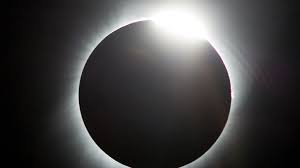Optometrists and eye health experts caution against the risks of solar retinopathy caused by direct gazing at a total eclipse. Learn about the symptoms and permanent damage to the macula, and the importance of using certified eye protection during astronomical phenomena.
As advertisements for viewing the recent astronomical phenomenon on April 8 flooded media platforms, a critical message echoed: “Do not view the solar eclipse without protection.” Optometrists and eye health experts issued stark warnings about the dangers of directly staring at the sun during a total eclipse, emphasizing the need for certified eye protection to safeguard against potential vision damage.
The main recommendation from experts is to use certified glasses, special telescopes, or indirect observation methods, such as using sheets of paper or trees. These measures help shield the eyes from harmful ultraviolet rays, which can lead to solar maculopathy—an irreversible damage to the macula of the retina, resulting in permanent vision impairment.
An ophthalmologist specializing in cornea and refractive surgery, explains that a total eclipse poses a significant risk of phototoxic damage to the macula—the central region of the retina responsible for sharp vision. This damage can manifest as visual lesions, causing distortions in the center of vision.
During the recent total eclipse on April 8, observed across North America, thousands witnessed the awe-inspiring phenomenon as the moon obscured the solar body. However, for some, improper viewing without adequate eye protection could result in severe consequences
A qualified optometrist, highlights the concentrated UV rays during an eclipse, which can directly damage the photoreceptors of the macula, leading to solar retinopathies.
Symptoms of solar maculopathy include dark sections or distortions in vision, indicating damage to the macula. While not resulting in complete blindness, solar retinopathy causes sectors of vision to malfunction, leading to permanent visual impairments with no available treatment.
In case of experiencing vision alterations post-eclipse, seeking immediate medical attention from a specialist is crucial to assess any potential damage. Doctors stresse the importance of using appropriate filters to protect the eyes, emphasizing that panic and fear surrounding eclipses stem from a lack of understanding about visual health issues.
As the world marvels at celestial wonders like a total eclipse, it’s imperative to prioritize eye safety and heed expert advice to prevent irreversible damage to the precious gift of sight.
